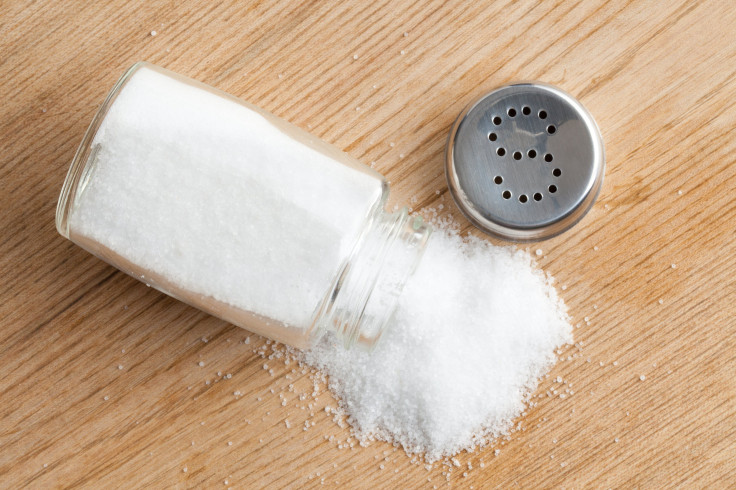High Salt Diets Linked To Increased Risk Of Multiple Sclerosis: How Environmental Factors Impact MS

Multiple sclerosis (MS) is an autoimmune disease in which the immune system attacks itself, destroying myelin, the fatty substance that surrounds nerve fibers in the brain and spinal cord. We don’t know what causes MS, but many scientists believe it’s a combination of factors, including genetics, past infections, and the environment. Now, researchers believe that eating too much salt might have a negative impact on a person’s risk for MS.
The researchers aim to better understand how genetic factors are intertwined with environmental factors when it comes to MS. “We hope to provide a comprehensive understanding of how and why environmental factors interact with individuals’ unique genetic makeup to influence autoimmune diseases such as MS,” Dimitry Krementsov, a researcher in the Department of Medicine, Immunobiology Program at the University of Vermont, said in the press release.
Published in The FASEB Journal, the study involved three groups of genetically different mice being fed a high-salt diet, and comparing them to mice eating a control diet. After feeding the mice their respective diets, the researchers induced an MS-like disease in them. Among the mice who ate the high-salt diet, one genetic group actually showed worse clinical signs of the disease; in the second genetic group, only females showed a worse response; and in the third group, salt did not affect their clinical symptoms at all. The researchers conclude that it’s all linked back to genetics — a mixture of diet and genetics could indeed impact the disease, at least in mice.
“Our results demonstrate that the effects of dietary sodium on autoimmune neuroinflammation are sex specific, genetically controlled, and CNS mediated,” the authors wrote.
A 2014 study out of the Raul Carrea Institute for Neurological Research in Buenos Aires found similar results. In that study, researchers measured the amount of sodium in the urine of 70 MS patients and found that people who ate a lot of salt were up to four times as likely to have worse MS symptoms. They concluded that in addition to vitamin D, the Epstein Barr virus, and smoking, salt certainly had an association with MS.
Of course, the researchers will need to further investigate the issue in humans with MS — but it might be some time before they will be able to undertake clinical trials. In the meantime, eating sodium in moderation is your best bet.
“As is the case with other things, you need to get enough salt so your body functions properly, but not too much or things start to go haywire,” Dr. Gerald Weissmann said in the press release. “This report helps shed light on what can go wrong in individuals with genes that make one susceptible to autoimmune disease. It also helps us understand how much salt is just right for any given individual.”
Eating too much salt has been associated with other disorders and health problems as well. Studies have shown that a lot of sodium intake is linked to cognitive decline, impaired kidney function, high blood pressure, and edema of the skin.
Source: Krementsov D, Case L, Hickey W, Teuscher C. Exacerbation of autoimmune neuroinflammation by dietary sodium is genetically controlled and sex specific. The FASEB Journal. 2015.



























